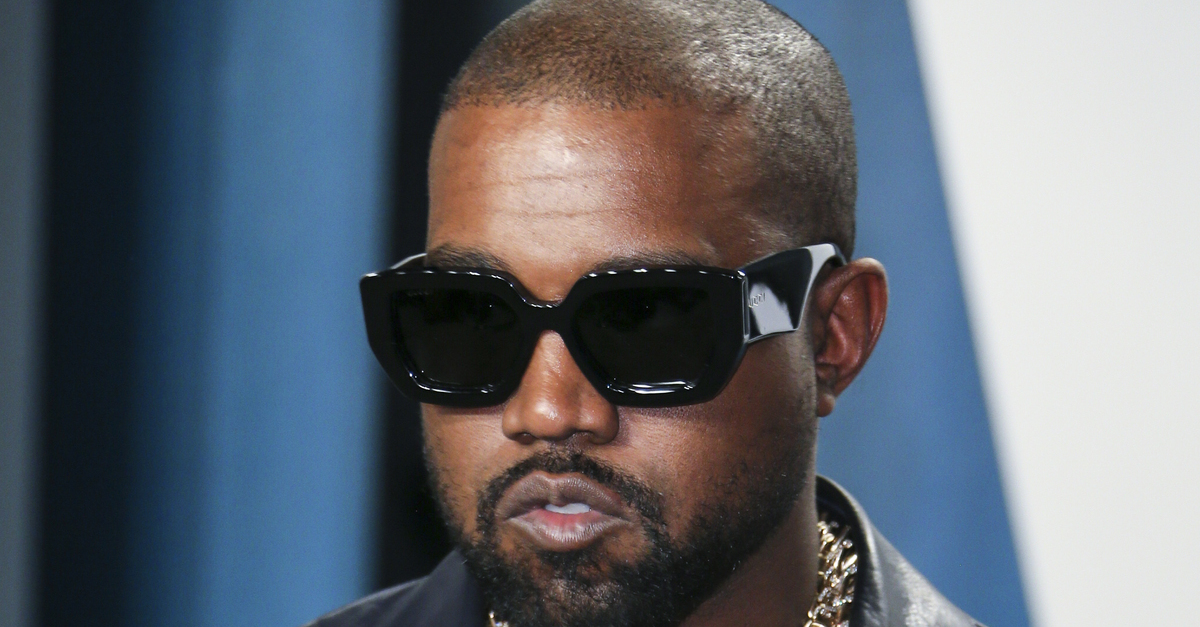
Presidential candidate Kanye West seems to be having still more trouble following election law. This time, he’s petitioning the State of Wisconsin to let him proceed with his campaign despite having potentially filed his paperwork 14 seconds too late.
The lateness of Kanye’s filing was raised in a sworn statement filed Friday, by Devin Remiker, who works for the Wisconsin Democratic Party. In addition to the timing problem, Remiker alleged that he had spoken to over 100 people who signed West’s nomination papers believing they were signing something else.
As we discussed before, there are multiple, state-specific rules about what’s required to get onto a presidential ballot. As an independent candidate, West needs to petition each state to have his name printed on the general ballot.
Wisconsin requires candidates to submit at least 2,000 signatures “no later than” August 4. West did submit the paperwork, and he had 2,400 signatures. Granted, some of those signatures–having come from “Mickey Mouse” and “Bernie Sanders”—are a bit problematic, but that’s a different issue. Then there’s the issue of a West campaign lawyer’s ties to the Trump campaign.
But the glaring problem at hand was that West’s submission appears to have been late. By 14 seconds. Under Wis.Stat. 8.20(8)(am), the papers must be filed “not later than 5 p.m. on the first Tuesday in August.”
According to a petition filed Monday by the West campaign, a Wisconsin State Elections Commission staffer told a campaign aide that she turned in the nomination papers 14 seconds after the deadline, at 5:00:14.
In West’s petition, his legal team makes a host of arguments. The paperwork wasn’t late, but even if it was late, it wasn’t the campaign’s fault, and in any event, West’s candidacy is far more important than his punctuality. That’s a lot to unpack, so let’s take it piece by piece.
The petition first argues that any time before 5:01 counts as “not later than 5 p.m.,” because the statute does not distinguish between seconds and minutes. If the legislature had meant “by 5 p.m.” it would have written that. The statute does not appear to address the specific time-based definition of “not later than.”
Although reasonable people might disagree as to whether “later than 5 p.m.” begins the moment the clock strikes 5:00 or the moment it strikes 5:01, filing deadlines set by state law would normally be interpreted in a manner consistent with other statutorily-created deadlines. For example, Wisconsin’s court rules explain that when faxed filings are required on a certain day, that day extends until “11:59 p.m. central time, as recorded by the court facsimile machine, so long as it is subsequently accepted by the clerk upon review,” while “documents submitted by facsimile transmission completed after 11:59 p.m. are considered filed the next day the clerk’s office is open.” While this rule is not necessarily controlling for elections filings, it does provide some context — most notably that state officials appear to have the final say on matters of timing.
West’s filing also makes the alternative argument that 5:00:14 is an inaccurate time marker, because the fourteen-second lateness was “hearsay.” The petition calls into question the timepiece used, and when that timepiece was last calibrated. West’s attorney Michael Curran, argued that Remiker (who called out the lateness), was biased:
It is quite evident that as a person with an interest in keeping Mr. West off the ballot, Mr. Remiker’s affidavit cannot be treated as credible and his alleged timekeeping should be considered questionable at best.
The petition also includes a narrative that there is a systematic attempt to keep Kanye off the ballot – referring to a “well-organized effort funded by wealthy outside groups, including the Wisconsin Democratic Party and its allies, who fear the candidacy of Kanye West, and seek to silence him.” That well-organized and highly-funded effort, detailed in the petition, amounted to having the doors locked, and opening those doors in a manner that “cost the filers at least 45 seconds.”
Team West casted the minutiae of filing requirements as insignificant against the backdrop of the larger goals afoot with West’s candidacy:
People of color have long been marginalized in this country. In seeking to remove Kanye West from the ballot and silence the voices of those who signed to place him, the Complainants are continuing this marginalization simply because Mr. West’s views and perspectives on issues do not conform with theirs and those of the Party they represent.
Next, the complaints will be reviewed by Wisconsin Elections Commission staffers, who will in turn make a recommendation to a bipartisan panel.
[image via Jean-Baptiste LaCroix/AFP via Getty Images]